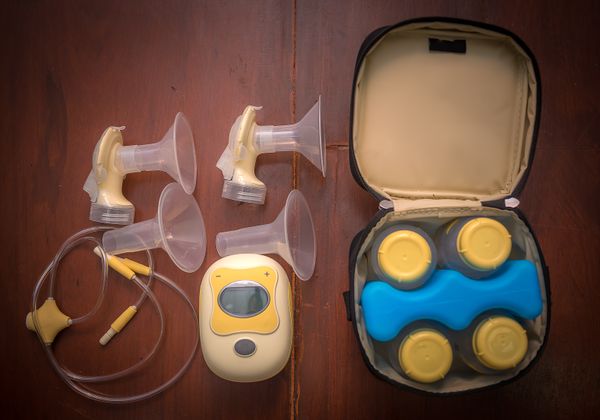After birth, your baby still relies on you for nutrients. Without the umbilical cord, it's a little less immediate, but, if you're breastfeeding, what you eat mostly determines what you're giving your baby.
Eating for Two
- Instead of three large meals, try to eat five or six small meals or snacks each day.
- Because the baby will be waking and sleeping at odd hours, many women find this fits their schedule better anyway.
- You need 200 to 300 more calories per day than what you ate while pregnant.
- This isn't a lot of additional food. You can fill these calories easily by:
- Adding an extra cup of milk and half a sandwich
- Grabbing a handful of almonds and a slice or two of cheese
- Spreading some apple slices with peanut butter
Can I lose weight and eat like this?
- Nursing a child requires a lot of energy, the same as running about four or five miles a day.
- Most women who breastfeed while maintaining a healthy diet will lose between half a pound and a pound per week.
Getting the Right Nutrients
- Continue taking your prenatal vitamin each day. You and your growing baby need the vitamins and minerals it contains.
- Build strong muscles. Get at least three servings of protein per day to help build muscle. Good sources include: Chicken, beef, fish, eggs, nuts, lentils, soybeans and beans.
- Build strong bones. Try to get 1,200 to 1,500 milligrams of calcium-rich dairy per day. If you can't reach the recommended amount with diet alone, take calcium supplements. Good sources include: Cheese, yogurt, cottage cheese, calcium-fortified juice, sardines, almonds and green leafy vegetables.
- Get the green stuff. Eat two servings of fruits and four or five servings of vegetables per day. Be careful with fruit juice; it's high in sugar—even 100 percent juice. Limit your intake to one glass per day and opt for whole fruits with more fiber, which helps prevent constipation.
- Control the carbs. Eat six to nine servings of bread, cereal, rice and pasta per day. One serving isn't a whole box of mac and cheese. Unfortunately, it's relatively small—equal to ½ cup of rice, beans or pasta or 1 slice of bread or a ½ of a flour tortilla.
- Restrict fats and oils. Four servings per day are recommended. Many foods contain some fat, but a serving is 1 tablespoon of oil, mayonnaise, butter or peanut butter.
- Stay hydrated. Pay close attention to your water consumption and aim for at least 8 to 12 glasses per day.
For more information on breastfeeding, be sure to check out Nurse Barb's Personal Guide to Breastfeeding.
This blog originally appeared on Nurse Barb's Daily Dose. Barb Dehn is a women's health nurse practitioner, award-winning author and nationally recognized health expert. She practices with Women Physicians in the Silicon Valley of California.







